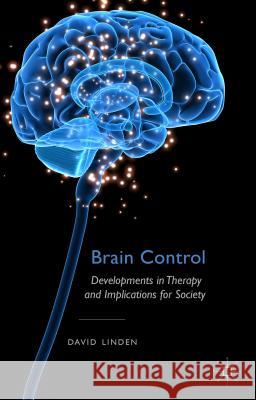Brain Control: Developments in Therapy and Implications for Society » książka
Brain Control: Developments in Therapy and Implications for Society
ISBN-13: 9781137335326 / Angielski / Twarda / 2014 / 193 str.
Brain Control: Developments in Therapy and Implications for Society
ISBN-13: 9781137335326 / Angielski / Twarda / 2014 / 193 str.
(netto: 191,66 VAT: 5%)
Najniższa cena z 30 dni: 192,74
ok. 22 dni roboczych.
Darmowa dostawa!
With the burden of brain disorders increasing worldwide, there has been a resurgence of interest in techniques to control the brain and thereby improve its function. Yet how realistic are these expectations and what are the ethical implications? This book reviews the main techniques that can enable patients to use their brains for communication and control and doctors to modify brain function. It explains how paralysed patients may be helped through brain reading, how brain stimulation can help to improve Parkinson's disease and certain mental disorders, and how patients can be trained to regulate their own brain activity through neurofeedback. Brain Control situates the application of these techniques within ethical and legal debates on the principles of autonomy and fairness, and suggests ethical standards for their future development.











